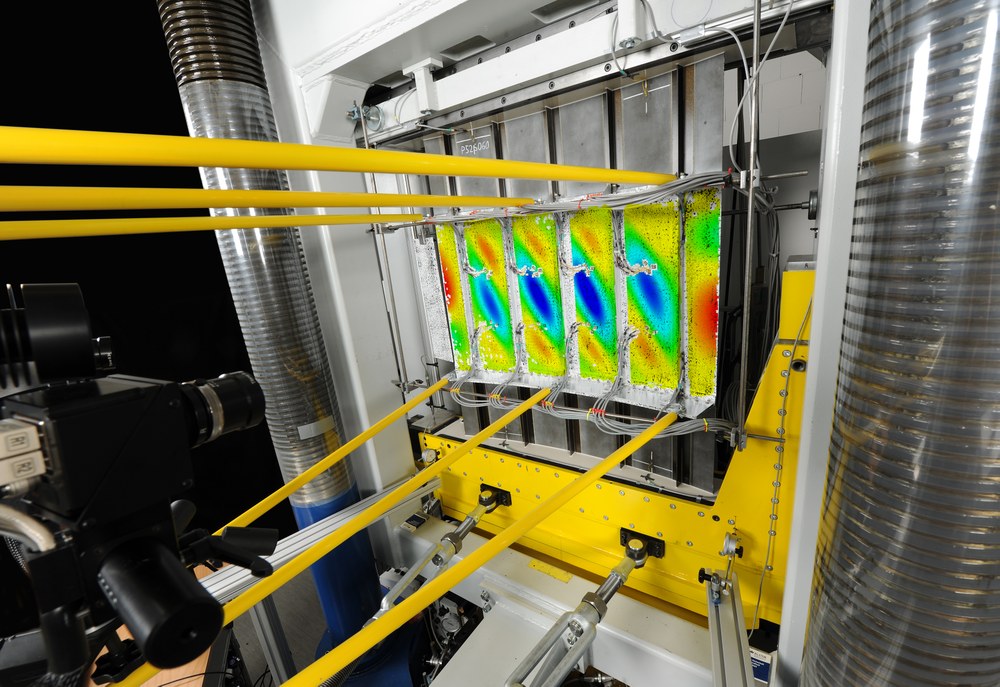Structural Mechanics Department

The department focuses on developing new methods for efficiently analysing and evaluating lightweight structures in aerospace, transport technology and wind energy. It is very important to consider the entire life cycle from component production to reusability or disposal. This is therefore mapped in new simulation methods and their software implementation. Innovative test methods complete the procedure. They allow the phenomenological analysis and validation of the new simulation methods at different levels of the test pyramid.
Together with international partners and in interdisciplinary teams of scientists, research is focussed on the following areas:
- Efficient design methods
- Innovative testing and measurement methods at component level
- Virtual structures and digital twin for the entire life cycle
Competences
The department conducts phenomenological studies of complex structural behaviour under multiphysical loads. Experimental, analytical and numerical methods are used for this purpose. New calculation methods allow a more accurate and efficient prediction of material and structural behaviour as well as their robustness assessment, taking into account inherent uncertainties. This is the basis for future simulation-based certification. The validation of the calculation methods is carried out using continuously developed test procedures and new innovative test benches.
Performance profile
- Methods for the overall design
- Structural stability
- Analysis of damage and damage tolerance from material to structural level
- Thermal analysis and thermo-mechanical coupled analysis
- As-built analysis using process simulation and effects-of-defects assessment
- Tolerance and uncertainty analysis on multiple scales
- Measurement and testing technology for phenomenological, validating and qualifying tests (e.g. buckling system, modular component test bench, dynamic drop test bench, THERMEX thermo-mechanical testing system)
